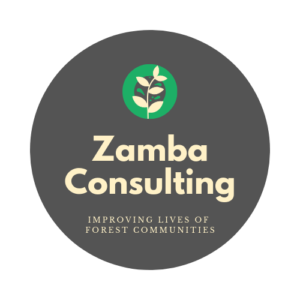Free Prior and Informed Consent (FPIC) is an ongoing process that demands communities are educated and consulted about decisions that affect them in a method and time frame that is appropriate to them.
Deforestation-free agriculture that provides sustainable revenue for local farmers and maintains the fertility of cropland is a keystone of successful forest conservation and payment for ecosystem services projects.
Protein enhancement projects like tilapia ponds provide communities with increased access to protein, simultaneously providing sustainable revenue, improving nutrition and reducing pressure on forest fauna.
Local capacity building requires communities learn skills to manage their own projects: from budgets, to implementation, to monitoring, evaluation and adaptive management.
Stakeholder engagement is foundational to forest conservation; ensuring your team has effective communication and confident facilitation skills is essential to project success.
Assisting communities break down complex problems into manageable opportunities for change empowers them to be the agents of their own development.






